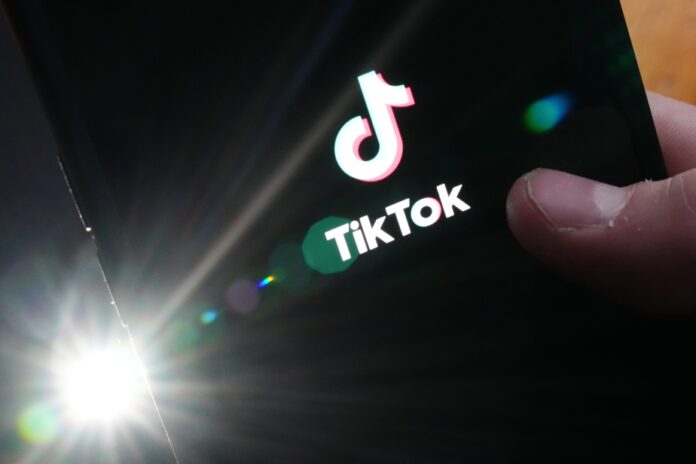(Montreal) Want to lose 100 pounds? You can do this with one click using the “100 lb down” filter popular on the TikTok social network. A tendency that can have a negative impact on body image and encourage “body-harming” behaviors to lose weight, warns a psychologist.
“I need to start going to the gym,” one TikTok user wrote in English, under a post that garnered 1.9 million likes where she used the weight loss filter. And she’s not the only one to join the trend: dozens of such videos can be viewed on the social network.
“Basically, what I thought was that it was mostly bigger people who were using that filter to project themselves and try to understand, or visualize…what they would look like if they lost. weight,” said Caroline Huard, better known as Loounie, author of vegan cookbooks and host of the podcast Face Down: Diet Culture with Loounie.
But many thin people also use the filter, through a first application that makes them look bigger in their photos. Then, users apply the weight loss filter to it to create a TikTok video.
“It hurts, because it again confirms the idea that you are a better person, you are more desirable, when you have less weight. It comes once again to support that there is a hierarchy in the shape of our bodies, ”said Caroline Huard. The host, also a content producer, reminds us that body dissatisfaction is at the root of diet culture, but also of eating disorders.
This filter is also of concern to Dr. Janick Coutu, a psychologist who works with people with eating disorders.
“I’m worried that it’s motivating people to do very body-harsh behaviors to lose that much weight. It’s also very grossophobic as a filter, because the underlying message is that you would have to lose 100 pounds to be more beautiful, “said the psychologist.
Filters also have a more insidious impact, which the professional’s patients may not be able to name.
“It leads to standards to be achieved that are completely unrealistic, since they are filtered, modified. What we observe in studies is that even if young people know that the images are modified, the fact remains that it still builds an expectation, a standard, that they will want to achieve, ”explained Ms. Coutu.
And some people can even develop an addiction to filters. “There is also a disconnection from the real appearance. So if I constantly use filters on my social networks, I can have difficulty with my image in my mirror. I can feel like it’s not necessarily my face, that I prefer the face I have on social media,” the psychologist said.
Just like the return of the holiday season, spring is fertile ground for the diet industry. The arrival of good weather and swimwear season has many people thinking about their weight.
“We are already in a fragile period for people who have body image difficulties, so on top of that, hammering ideas of diet culture, fatphobia, it is indeed very harmful,” said Janick Coutu, referring to the weight loss filter on TikTok.
And it is from May 1 to 6 that the ÉquiLibre organization held the Week without a diet.
“The idea is to understand that we don’t have full control over our weight. It’s not true that we can model it as easily as what we see with a filter, it’s very complicated and multifactorial what determines the weight of a person. And in addition, there are many factors that are not controllable, such as genetics,” explained Andrée-Ann Dufour Bouchard, nutritionist and project manager at ÉquiLibre.
“The only thing we can do to improve our health is to gradually change our lifestyle habits, and make sure that it becomes things that we like to do, and that we can maintain in the long term. , because we have no control over the weight. That’s still very ungrateful, but that’s how it is in life, in the biology of our body, ”added Ms. Dufour Bouchard.
For Caroline Huard, it is important not to let our guard down on social networks, because even if the “100 lb down” filter begins to be denounced, another will inevitably take its place.
“I think it’s important to have a ‘feed’, to follow accounts that present the most diverse bodies possible, because our eye will get used to it, and we will understand a little better what is the normality, normality being diversity,” she stressed.








